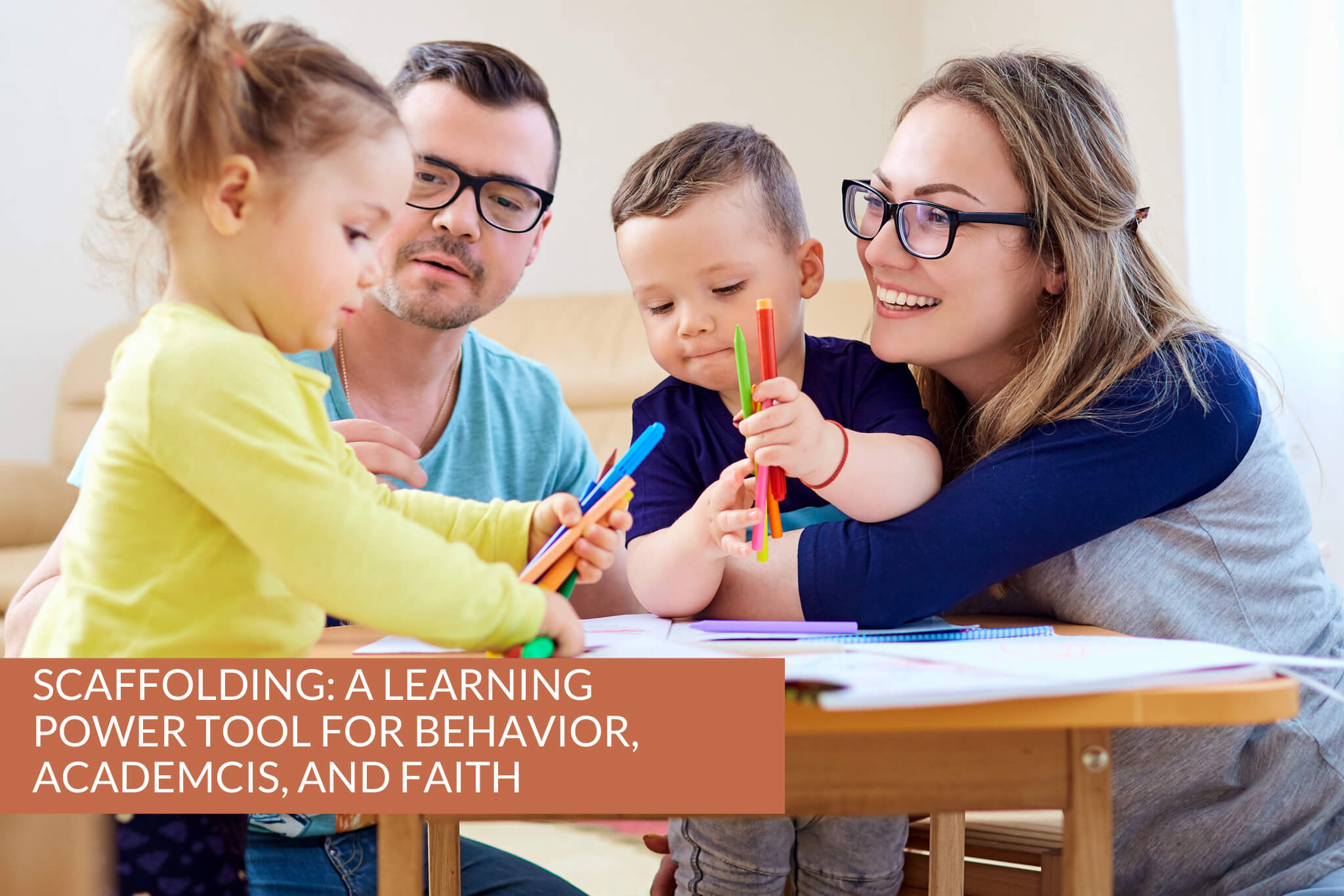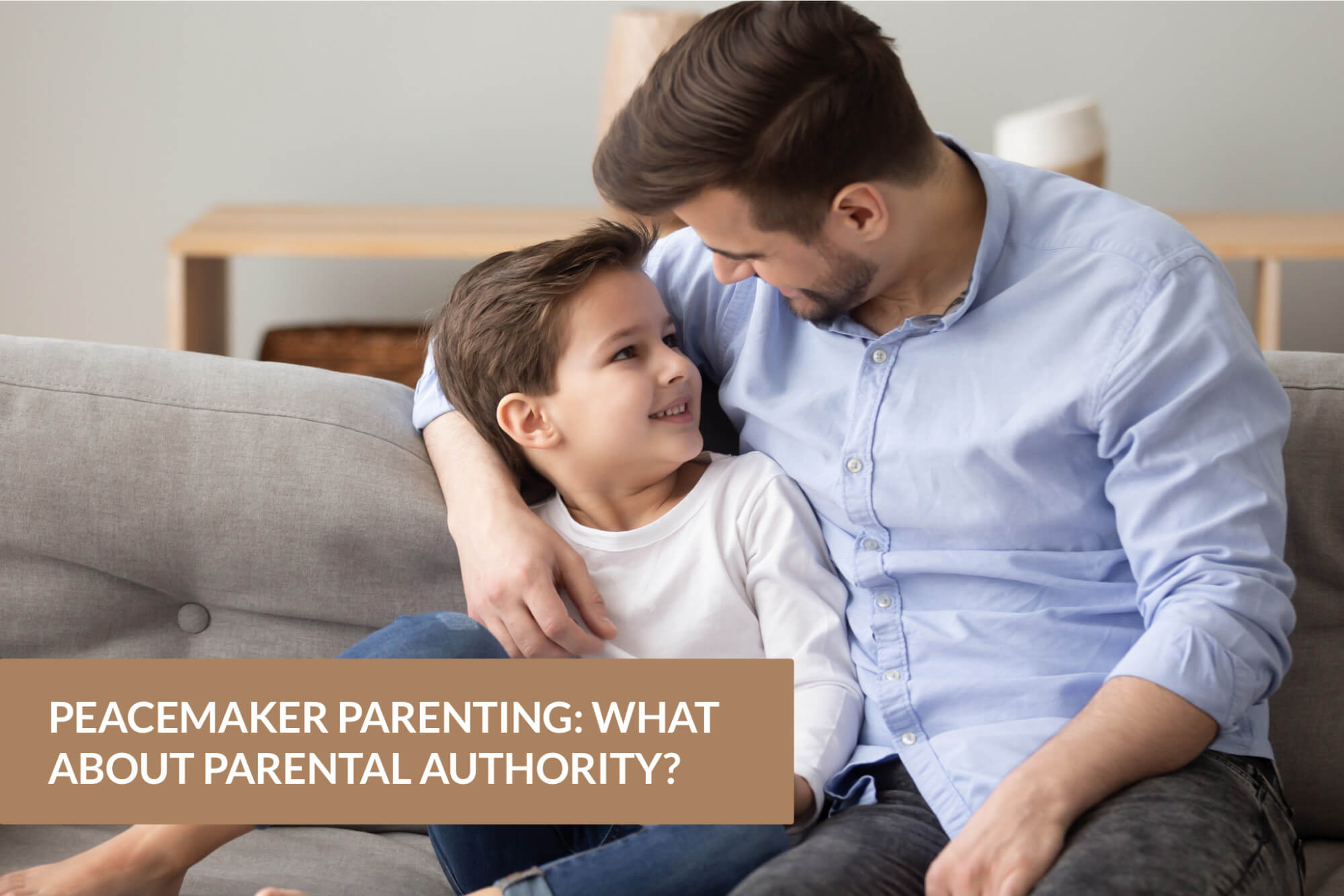
Understanding Scaffolding and How it Helps Kids Learn
Scaffolding, as a parenting tool, draws its metaphor from construction, where temporary structures are erected to support the building process until the structure can stand on its own. In the realm of child development, scaffolding refers to the supportive techniques and guidance provided by parents or caregivers to help children learn new skills or concepts. This strategy emphasizes the importance of providing just enough assistance to enable a child to accomplish a task independently, gradually reducing support as the child gains proficiency. You're already familiar with scaffolding when it comes to teaching children to read. First, you help them learn to recognize letters, then you help them learn the sounds of individual letters, then letter groups, and finally words.
Adaptable Support Strategies
Effective scaffolding involves recognizing a child's current level of understanding or skill and then offering appropriate support to help them progress further. This support can take various forms, such as breaking tasks into manageable steps, offering verbal prompts or cues, providing demonstrations, or offering constructive feedback. Importantly, scaffolding should be flexible and responsive to the child's individual needs, adjusting the level of support as necessary to promote optimal learning and development. Here’s another quick example of scaffolding in action:
Scene: A boy, Alex, sits on the floor struggling to tie his shoelaces.
Dad: (Observing Alex's attempts) Hey, Alex, it looks like you're trying to tie your shoelaces. That's great! Do you want some help?
Alex: (Frustrated) Yes, please!
Dad: Okay, let's break it down. First, make two bunny ears with the laces, like this. (Demonstrates)
Alex: Like this?
Dad: Perfect! Now, cross them over each other and pull one through the hole. Remember?
Alex: Oh, I think I got it! Now I’m going to pull them tight. (Successfully ties shoelaces) I did it!
Dad: Great job, Alex! You're getting the hang of it. Remember, if you ever need help, I'm here.
Meeting Kids Where They Are…
One key aspect of scaffolding is the notion of "zone of proximal development" (ZPD), a concept introduced by psychologist Lev Vygotsky. The ZPD refers to the difference between what a child can do independently and what they can achieve with the support of a more knowledgeable person, such as a parent or teacher. Scaffolding operates within this zone, providing the right amount of assistance to help children advance their skills and understanding.
…So They Can Grow From There!
Through scaffolding, parents not only facilitate their child's learning but also foster independence and confidence. By offering support tailored to the child's abilities and gradually allowing them to take on more responsibility, parents empower their children to tackle challenges with increasing autonomy. Ultimately, scaffolding nurtures a child's development by providing the necessary support structures to help them reach their full potential.
Using Scaffolding to Help Share the Gospel with Children
Scaffolding, as a parenting concept, can be a powerful tool when it comes to sharing the gospel of Jesus with children. Just as in other aspects of child development, scaffolding in this context involves providing supportive guidance tailored to the child's understanding and needs, gradually empowering them to grasp deeper spiritual concepts and develop a personal relationship with Jesus.
Laying the Foundation Through Storytelling
Initially, parents can lay the foundation by introducing children to simple, age-appropriate stories from the Bible that convey key attributes of God and His character. Through storytelling, parents can scaffold understanding by breaking down complex Biblical narratives into digestible segments, emphasizing the trustworthiness of God as the hero of the story, and inviting children to think about how these stories relate to their own lives.
Initially, parents can lay the foundation by introducing children to simple, age-appropriate stories from the Bible that convey key attributes of God and His character. Through storytelling, parents can scaffold understanding by breaking down complex Biblical narratives into digestible segments, emphasizing the trustworthiness of God as the hero of the story, and inviting children to think about how these stories relate to their own lives.
Engaging in Meaningful Discussions
As children grow and mature, parents can scaffold their spiritual development by engaging them in meaningful discussions about faith and what it means to follow Jesus. This might involve asking open-ended questions to encourage critical thinking, such as "Where did you see God at work today?" or "What do you think Jesus would do in this situation?" or "How can we show love and kindness to others, just as Jesus did?" By prompting children to reflect on their beliefs and values, parents can help them internalize the principles of their faith and apply them to their daily lives.
As children grow and mature, parents can scaffold their spiritual development by engaging them in meaningful discussions about faith and what it means to follow Jesus. This might involve asking open-ended questions to encourage critical thinking, such as "Where did you see God at work today?" or "What do you think Jesus would do in this situation?" or "How can we show love and kindness to others, just as Jesus did?" By prompting children to reflect on their beliefs and values, parents can help them internalize the principles of their faith and apply them to their daily lives.
Providing Experiential Learning Opportunities
Most Christian parents are already scaffolding their children's understanding of the Gospel by providing opportunities for experiential learning and participation in faith practices and rituals. Attending church services together, participating in prayer and worship, and engaging in acts of service and outreach as a family are all ways you can help your children learn what it means to live as a follower of Jesus, deepen their connection to their faith community, and develop a sense of belonging within the larger body of Christ.
Most Christian parents are already scaffolding their children's understanding of the Gospel by providing opportunities for experiential learning and participation in faith practices and rituals. Attending church services together, participating in prayer and worship, and engaging in acts of service and outreach as a family are all ways you can help your children learn what it means to live as a follower of Jesus, deepen their connection to their faith community, and develop a sense of belonging within the larger body of Christ.
Ultimately, the goal of scaffolding in sharing the Gospel with children is to nurture a foundation of faith that centers God as wholly trustowrthy. By providing structured guidance, meaningful engagement, and opportunities for personal reflection and growth, parents can start planting the seeds of a deeply-rooted, robust relationship with Jesus.

guest contributor: Natasha Metzler | www.natashametzler.com
A while back our family had some things come to light, where one child had lied so convincingly about the other that we, as parents, believed the wrong child. It was a serious issue, that had huge repercussions in all of our lives.
When the truth came out, I was devastated. Horrified. Angry at myself (the most) for not knowing, and angry with God that He hadn't done SOMETHING to show us the truth earlier. Because I had believed a lie, I perpetrated a lie, and maybe worst of all, I failed to protect one of my children from harm, when I would literally have done anything to keep them safe.
I was a mess. Not sleeping. Barely eating. I felt so stupid. Once I knew the truth, I could look back and see a million little moments when the truth had been *right there* and I had missed it.
"You should have known," was the constant refrain in my head.
Thankfully, I have some close friends who knew what was happening and surrounded me and helped me. I met with a therapist & one thing she told me over and over was, "You can't know what you don't know."
The shame I felt for not knowing, wasn't mine to carry. It was not my fault I didn't know. That didn't mean that I didn't have responsibility! I had to apologize, I had to humble myself as we worked to right wrongs. I needed to learn from our experiences. And at the same time, I could also walk in freedom from shame and condemnation.
Scripture tells us in Romans 8:1 that there is no condemnation for those who are in Christ Jesus. This means we are FREE from the lie that we need to get everything right to be acceptable, or even to be successful!
In raising our kids, we're going to get things wrong. Maybe those things will have mild consequences on one child and life-altering ones on the next. We're human beings with complex nervous systems and outrageously complex brains. How things affect each person is impossible to predict or completely prevent.
If we believe that we are solely responsible to know everything and prevent everything, we're going to fail because that's impossible. Nobody can know everything.
So what can we do? Well, to be blunt, when we know better, we do better. We shift. We change. We stay humble and teachable.
And as we change, we show grace to others. Because people can't know what they don't know. (And just throwing information at someone won't fix that, hearing isn't the same as knowing.)
We can't fix these things for anyone else, but we CAN live out changes and make it easier for others to learn and grow without shame.
It's all a process though. It takes time and because life doesn't pause for us to figure stuff out, it's easy to get wrapped up in condemning ourselves or others. But what if, instead, we offered up hope?
This is the truth about Jesus that fills me when I'm devastated by my choices and others' choices. What following Jesus offers, is the knowledge that there is hope in every situation. Nothing is beyond being redeemed.
I can sit in condemnation because my parenting decisions opened the door for harm, or I can grieve and release those choices, trusting that God WILL step in and fill all the places where I fail. Then I'll do my best to follow His lead, repenting and seeking reparations where needed.
We are limited in our humanness, unable to know what we don't know. But we are also deeply capable, made in the image of a holy God, and when we know better, we can do better.

In the journey of parenting, finding harmony often feels like seeking an oasis in a desert. It's a quest for balance amid chaos, understanding in the face of conflict, and empathy within every interaction. The essence of parenting in harmony is not about achieving a perfect balance but learning and practicing skills that foster a peaceful and nurturing environment for both parents and children. Here are practical tips and healthy conflict resolution skills to guide you toward finding harmony.
Cultivate Open Communication
Open, honest communication serves as the cornerstone of understanding and resolving conflicts. Encourage an environment where both husband and wife feels comfortable and safe expressing their thoughts, feelings, and concerns without fear of judgment. Practice active listening, which involves giving your full attention to the speaker, acknowledging their perspective, and responding thoughtfully, not to change their mind, but to better understand their perspective.
Practice Empathy
In John 11 we read about the death of Lazarus. Shortly after he died, his sisters, Martha and Mary, overcome with grief, start blaming Jesus for Lazarus' death. What's surprising to note is that their emotional responses aren't actually rooted in reality. "Lord, if You had been here, our brother would not have died!" they both lament to Jesus.
He had every right to correct their misunderstanding of reality. He knew that Lazarus' death was necessary to demonstrate His divine power. He could have said something along the lines of "Feelings aren't facts" or even offered some kind of authoritative expectation to trust Him. Instead, John 11:33-35 describe Jesus' deeply empathetic and compassionate response. He is deeply troubled and weeps with them. This is empathy.
Empathy bridges gaps between differing viewpoints. It allows you to see the world from your partner's and child's perspective. This doesn't mean you have to agree with them but understanding their feelings and where they're coming from can significantly diffuse tension and lead to solutions that work for everyone.
Be Intentional about Mutually-Respectful Dialogue
Romans 12: 10 exerts us, "Be tenderly devoted to one another in brotherly love. Out-do one another in giving honor." If this is Christ's expectation for His church, how much more tender, honoring, and life-giving should our homes and families be?
Non-violent communication is an approach to communication that focuses on compassion, empathy, understanding, and honor. It is not meant to end all disagreements or avoid conflict, but rather, it is a way of communicating that cultivates peace in the midst of conflict. One of the goals of non-violent communication is to practice respecting yourself and others while discussing difficult topics and navigating conflict and disagreement. It minimizes judgemental statements that place shame and blame on others, and replaces it with communicating personal needs and boundaries with honor and respect.
Collaboration a journey, not a destination. It is a habit and a rhythm of your home and marriage, not an end goal. It is an intentional path you and your spouse walk together, not the pinnacle of your wanderings.
There are six steps to keep keep you and your partner on the path of collaboration. Each one serves an important purpose, and most of the time it will serve you best to walk this path in order:
- Regulate - make sure you're both calm and able to listen well, reason well, and love well
- Express Needs/Concerns
- Look for Common Ground - where do you already agree?
- Suggest solutions or plans for specific parenting challenges
- Agree on a Plan - you're both committed to giving this a try (a minimum of 4 weeks should be considered, as it takes time to develop new habits and see growth!
- Assess the Plan at a designated time - evaluate how well the solution or plan is working, and what may need to be done differently
Taking time to show honor, respect, concern, and care for each other's needs and feelings will help cultivate harmony in your parenting, even when there isn't absolute unity.
Seek Support When Needed
Remember, it's okay to ask for help. Whether it's consulting with a family therapist, joining a parenting group, pursuing parent coaching, or simply reaching out to friends and family for advice, external support can offer new perspectives and strategies for finding balance and harmony in your parenting journey.
Harmony in parenting is an ongoing process of learning, understanding, and adapting. By fostering open communication, teaching conflict resolution skills, and incorporating calming practices like the use of essential oils, you can create an environment where all family members feel seen, heard, and valued. Remember, the quest for harmony is not about perfection but about building a foundation of love, respect, and mutual support.
Are you struggling to find harmony and unity in your parenting approach? Our workshop, Peacemaker Parenting when Parents Disagree is designed to help you navigate challenging discussions, find common ground, and forge a path forward in your parenting with more peace and harmony.


What's Different about Peacemaker Parenting?
Peacemaker Parenting shifts away from traditional parenting in that it views parental authority as coming alongside our children to lead, guide, disciple, and help them grow and mature, instead of standing over them to make demands of them and punish them when they don't obey. And our reason for this? It's exactly what God has done with us. First, He gave us Jesus as a model of how to live out His original plan for humanity. But He also gave us a helper - the Holy Spirit to lead, guide, disciple, and help us obey Christ.
Peacemaking authority
Peacemaker Parenting is parenting from a place of authority. But we are careful to use our authority, strength, and power in right ways and for good ends. We must love our children with a self-denying, self- giving, self-sacrificing love that looks beyond ourselves and to the ultimate good of our children. For herein lies the paradigm shift: how we parent our children is rooted in what we believe about God and how He treats us. It isn't until we understand and fully embrace that His kindness, not threat of punishment or promise of reward, that leads us to repentance, that we can choose to model that kindness to our children.
"When He, the Spirit of truth, has come, He will GUIDE you into all truth." John 16:13
"But the Helper, the Holy Spirit, whom the Father will send in My name, He will TEACH you all things." John 14:26
"But when the HELPER comes, whom I shall send to you from the Father, the Spirit of truth who proceeds from the Father, He will testify of Me." John 15:26
"Likewise the Spirit also HELPS in our weaknesses." Romans 8:26
Parenting with peace and purpose, as peacemakers, requires us to recognize that being in authority is not about exerting power over our children, but about coming alongside them and sharing safety, security, wisdom, and discernment because they do not posses them on their own.
Parenting with authoritative authority vs. authoritarian authority.
Our approach to authority plays a pivotal role in shaping the character of our children. And there's little doubt that how we model authority has spiritual implications as well. We see examples of authoritative authority throughout the New Testament, not only in the ministry and teaching of Jesus, but also in the formation of the early church. It comes through clearly in Paul's encouragement and correction of the churches in Corinth, Thessalonica, and Galatia. While authoritarian authority seeks to shape a child's behavior through (often rigid) rules and punishments, authoritative authority seeks to shape a child's character by modeling the compassionate and merciful nature of God, allowing room for grace and forgiveness when mistakes are made.
Wondering what this looks like in action? Check out these posts for some ideas:

I used to be an angry, yelling mom. Postpartum anxiety left me feeling ragey over every little thing. Too many toys on the floor? Yell at my toddlers to pick them up. Blueberries dropped on the kitchen floor? Yell at them that food belongs on a plate, not the floor. Fighting over a toy? Yell at them that it's not okay to hurt each other! Yes, I even yelled at them to stop yelling in the house.
I knew yelling when it wasn't an emergency was harmful to my children's developing brains and to our relationship. And I was committed to changing and doing better. But for me, learning not to yell took time and effort. (And yes, since my rage was the result of postpartum anxiety, it required addressing the root issues as well,)
One of the tricks I used to keep from yelling was to sing or use a "shocked queen" voice when I caught myself yelling or felt the urge to yell. Over time, I learned to SWITCH off my yelling habit. Here's what I mean:

Interrupt your neural pathways
Whether yelling was passed on to you from your parents, or you started using it out of desperation, once your brain learned to use yelling as a parenting tool, it formed a neurological pathway that makes it really, really easy to resort to yelling. As you work to transform your parenting triggers, create new responses, and use new parenting tools you have to create a "roadblock" on the old pathway so your brain learns to take the new pathway - or new response. Here are some "roadblocks" you can use to S.W.I.T.C.H to a new response so you can start developing new habits.
Start Singing
This is a great tool to use when you're feeling frustrated, or when your kiddo doesn't seem to be listening. Singing has been found to reduce cortisol (the stress hormone) in your body, and because it is a tool for building connection with your child, it can help ease tensions and help you communicate in a less threatening way. Example: kids fighting over a toy - Sing: "You can come up with a plan, to share between two brothers. Or you can put it in my hand, and it will stay with mother. Until you come up with a plan that shows kindness to each other. The great thing with kids is that you don't even have to use a familiar tune! It's fine to totally wing it!
Whistle a Tune
When you catch yourself yelling, switch to whistling a tune for just a few moments. Not only will this serve as a "roadblock" to redirect your brain to the new habit you're working towards, it can also help calm your stress response. Whistling forces you to breathe through pursed lips, which is a proven way to slow your heart rate and calm your central nervous system. Plus, whistling has been found to lighten your mood. If you can't whistle? Don't worry! You can blow through your lips as if you're whistling, and still get the stress- calming benefits.
Imaginative Play
Playfulness is a tried and true way to connect with your child. When you catch yourself yelling, switch to imaginative play to help ease the tension that just exploded. Example: Child isn't cooperating at bed time, and you've just yelled to get in the bath or else... "Or else, when your feet turn to flippers you're going to fall straight to the ground and start flapping and flopping like a fish out of water! It's just about time for mermaid flippers to show up!" You can use any and all imaginative play, and the great thing is that you don't necessarily have to stop yelling! You can continue with the momentum, but shift it to playfulness and silliness.
Tsk, Tsk, Tsk
This one is handy because you can use that *tsk tsk* sound that's notorious for communicating shame, and use it positively instead! When you catch yourself yelling, switch to a Tsk...tsk. sound between your teeth. That sound is an alveolar formed by suction in your mouth, and you can use it to settle your nervous system and interrupt your old neural pathway. Be careful with this one, though. If you're overly hard on yourself, or struggle with guilt and shame, either skip this one, or only use it intentionally and without shaming yourself or your child.
Cough, Cough
It's a bit surprising, but coughing - a really good, guttural cough, can help lower your heart rate by stimulating the vagus nerve. That's why this is a great tool for interrupting yourself when you catch yourself yelling. You already have a bit of force coming out of your mouth - simply redirect it to a few good, hard, coughs to help lower your heart rate and re- wire your brain. Once you've accomplished the task of interrupting the old habit, remember to practice your new response to replace yelling.
Hum...
Kind of like whistling, humming is a great tool to switch off your old habit of yelling. Humming has been found to be a natural way to self soothe, as it reduces stress and induces calmness throughout the body. Humming can be used in place of mindful breathing to softly force air out of your belly. And lastly, humming is known to elevate one's mood and promote feelings of peace and happiness. Tip: Have a song in mind that will be your go-to when you catch yourself yelling. Don't assume you'll be able to come up with one on-the-spot!
Need more helping taming your parenting triggers? Check out our Peacemaker Parenting: Peaceful Reset workshop, it's helped thousands of parents understand and heal their triggers so they can parent with peace and purpose.








